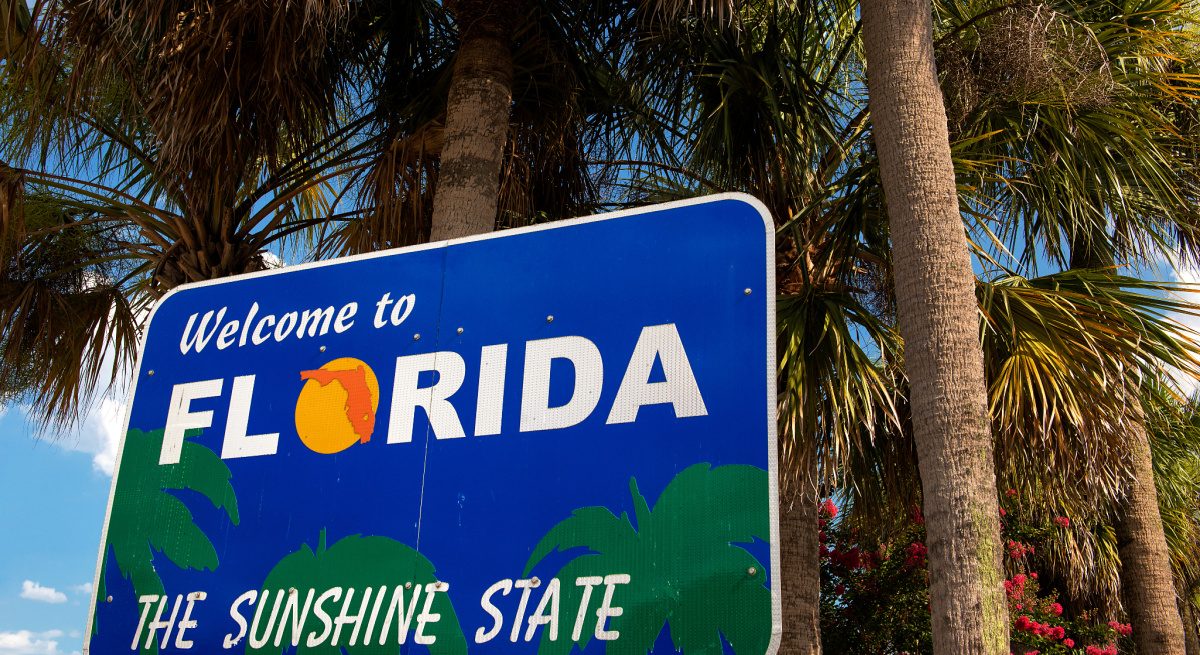Sunshine State Sizzle: What Restaurateurs Need to Know About Operating in Florida
3 Min Read By Omar Ali-Shamaa
South Florida is turning on the heat as vacant kitchens sizzle up with renowned restaurants, reigniting a restaurant-going experience. Spurred by favorable tax laws, tropical weather and relaxed COVID-19 restrictions, many have flocked to South Florida, relocating their families and businesses. As Miami becomes “Wall Street South” and an influx of tech moguls move to South Florida, restaurant operators are opening locations in Florida, following the migration of renowned restaurants such as Le Bilboquet, Cote, Carbone, and Freehold.
While other parts of the country are grappling with closures, strict restrictions or operating at limited capacity, the majority of South Florida restaurants have been operating at 100-percent capacity since October 2020. Florida’s looser restrictions and friendlier year-round climate have accelerated the migration of restaurateurs looking to make South Florida their new home.
Although restaurant operators moving to South Florida may not face capacity restrictions, they face a competitive real estate market. Landlords have capitalized on the influx of tenants, and with COVID-19 hindsight, have implemented or modified their leases to include the following provisions:
- Cleaning Specifications. Since the onset of the pandemic, hygiene has become a paramount concern. Deep cleaning all touchpoints in both common areas and restrooms have become a priority. Landlords are requiring operators enter into separate service-level agreements and to provide detailed cleaning specifications outlining cleaning and sanitization procedures. In fact, many landlords are requesting assurances from operators that they are making diligent efforts to mitigate infections. These assurances are usually stricter than those already mandated by local and state regulations.
- Excess Rent Clause. This clause requires a tenant pay their landlord a certain sum of money received from a buyer or assignee in the event that the tenant assigns the lease or sells the business. This provision often results in a tenant forfeiting all of its profits from the assignment or sale of the business to the landlord. Due to the increase of operators taking over existing spaces, landlords have resorted to excess rent clauses to control tenant turnover.
- HVAC Specifications. Customarily, landlords provide premises with a working air conditioning (HVAC) system or an allowance to modify the HVAC system. Recently, landlords and tenants have requested that HVAC systems be upgraded to include increased filtration and a UV light, reducing the spread of infection aerosols. Robust HVAC systems and provisions governing airflow and ventilation maintenance will soon become the new norm.
- Co-Tenancy Provisions. Co-tenancy provisions have historically been included in leases for mall and shopping center tenants. Co-tenancy provisions require a landlord to maintain a certain level of occupancy or a certain percentage of tenants in the center to be open. Failure to maintain co-tenancy figures allows a tenant to pay reduced rent and can result in lease termination. Due to the pandemic, landlords have begun to push back on co-tenancy provisions citing government shutdown uncertainty. Restauranteurs, however, should be wary of removing such protections as co-tenancy provisions are intended to maintain a certain level of foot traffic in a center.
In addition to lease considerations, restaurateurs moving to South Florida should understand their local ordinances and regulations. For example, municipalities vary on outdoor seating permit requirements. Some cities require detailed architectural plans – especially if the outdoor seating is on or adjacent to a state road, which may also require approval by the Florida Department of Transportation. Some counties, like Miami-Dade, have streamlined permitting requirements and allow restaurants to use parking spaces for outdooring dining. Failure to abide by these local rules, however, can result in the restaurant’s outdoor seating permit being revoked or suspended.
Aside from the looser restrictions, South Florida provides increased benefits to operators looking to relocate, such as lower rent (compared to New York and Los Angeles), a lower minimum wage, and more favorable laws for businesses. In fact, Governor Ron Desantis signed SB-72 on March 29, 2021, which protects businesses from COVID-19 lawsuits if they make “good-faith efforts” to follow government guidelines. The new law requires plaintiffs to obtain affidavits from physicians attesting defendants’ acts or omissions caused damages, injuries, or death. The bill also raises the legal standard and requires cases be brought within one year of an alleged COVID-19 related problem.
South Florida’s balmy climate and open space – combined with the government’s loose COVID-19 restrictions – and protectionist policies for businesses, is poised to garner continued interest from the hospitality industry. Compared to northern cities like New York, South Florida provides restaurateurs more predictability in one of the most unpredictable industries. The South Florida restaurant migration is just getting started.


